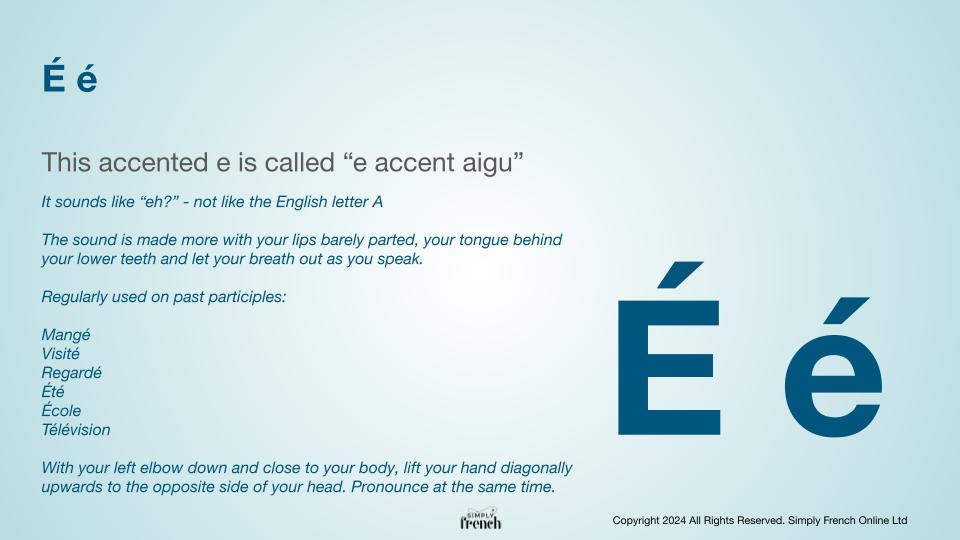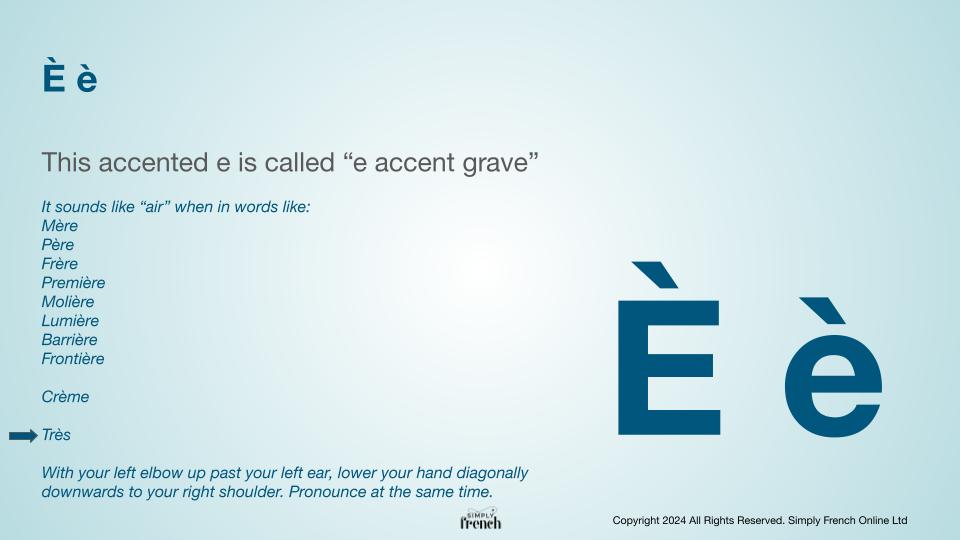How to pronounce é and è in French
Jan 08, 2024How often do you mix up the accented é and è either in writing or when trying to read French?
If you’re wanting to read more fluently, make the correct sounds in your head when you’re reading, or even say then correctly when reading to other people, but it somehow all gets muddled up . . . then I thoroughly understand.
If only there were no accents! But there are so many, I thought I would help you out and share the little hints that make a big difference in the smallest of mini-lessons for you:
In this mini-lesson, you’ll see
- How to pronounce the accented é
- How to pronounce the accented è
- How not to forget them when reading or writing

How to pronounce the acute accent in French.
The main difference between the 2 vowels is the aperture. Let’s start with the acute accent which is accent aigü in French.
You barely open your mouth to produce it. Your tongue is behind your lower teeth.
What are the common words with this accent?
You will see it with all regular past participles (ER verbs) like:
- mangé >>> eaten
- visité >>> visited
- aimé >>> liked
- travaillé >>> worked
- regardé >>> watched
- été >>> been
There are also everyday words with this accent:
- école >>> school
- télévision >>> television
- idée >>> idea

How to pronounce the grave accent in French.
The grave accent is more open. There are quite many words with this accent such as
- mère >>> mother
- père >>> father
- frère >>> brother
- lumière >>> light
- frontière >>> frontier
In this case, they all sound like “air” with the combination of the grave accent with re.
Nonetheless, you can also find the grave accent in words like:
- très >>> very
- crème >>> cream
- près >>> near

Tips to distinguish both accents.
At this point, you are aware that the grave accent is more open than the acute one. You have an idea when to find each of them.
But, how do you distinguish them?
All means are good to memorise them. First, how to spell them without mixing up the accents.
Then, you can contrast them with a list of similar words or with words with both accents like:
- Hélène >>> Helen
- élève >>> pupil
Here are additional ideas for you:
- Visualise the sound
- Use your arm - or a flick of the hand
- Vocalise the sound - speak it out loud
- Practice writing the sounds in specific words
- When you hear French, focus on just one sound

Improve your pronunciation
The best way to master the sounds is to practice. This is why I created a battery of exercises for you in my French Language accelerator

So, do you struggle with the acute and grave accent in French?
Maybe it’s a question of confidence? If it’s the case, I have these to help you:
How can I overcome fear of speaking in French?
Free Masterclass
Learn my 4 step method of how to hold meaningful french conversations the R.E.A.L. way in just 30 minutes a day.
When you signup, we'll be sending you weekly emails with additional free content

